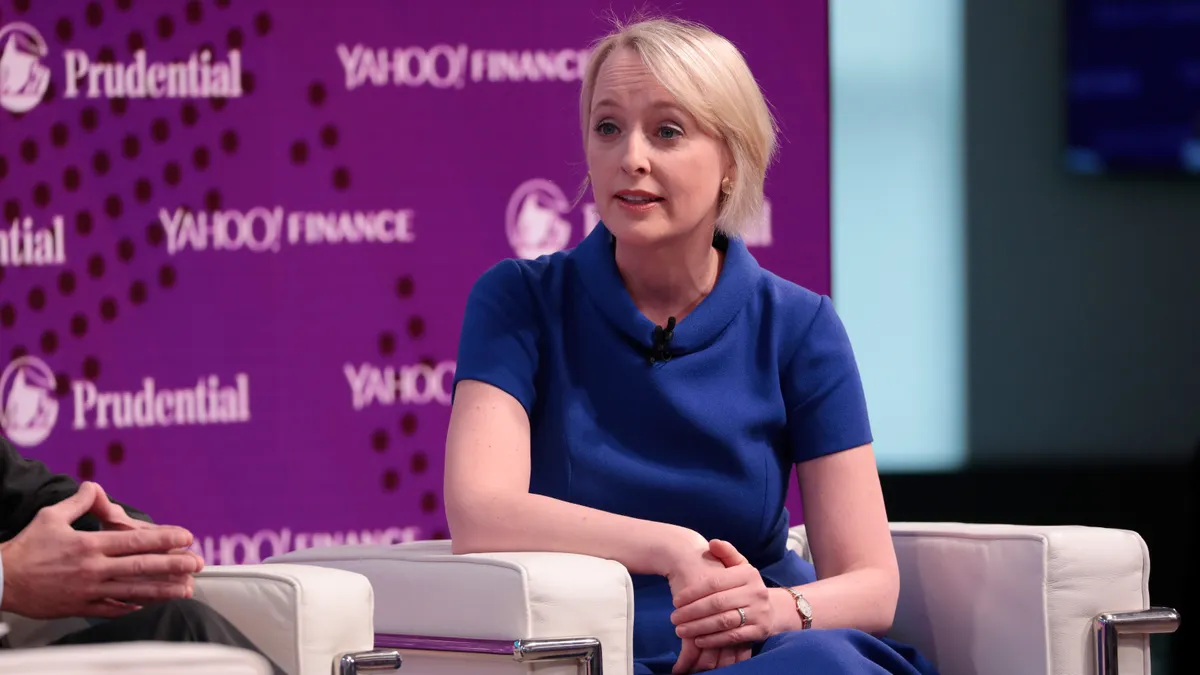Dive Brief:
- Accenture anticipates generative AI adoption will accelerate enterprise modernization and boost the IT services and consulting firm’s revenue growth, according to Chair and CEO Julie Sweet, speaking Thursday during a Q4 2023 earnings call, for the three-month period ending Aug. 31.
- “We estimate that only 40% of workloads are in the cloud today, only one-third of clients have modernized their ERP platforms, and less than 10% have what we define as mature data and AI capabilities,” Sweet said.
- Adoption will require infrastructure enhancements, according to Sweet. “Gen AI is an amazing technology,” she said. “It's going to do great things. And what I tell all my clients: can't use it unless you're in the cloud, have data and you modernize your core.”
Dive Insight:
Accenture felt the sting of slowing growth as customers trimmed discretionary spend and paced tech investments in a year clouded by macroeconomic uncertainty.
The company saw revenue growth contract to 4% year over year in the final quarter of its fiscal year, a far cry from the previous year’s 15% increase. Revenue for managed services grew 10% year over year, offsetting a 2% decline in consulting.
As mixed economic signals persist, the tech industry has turned to generative AI to spark revenue growth.
Accenture has already found clients eager to adopt the technology, according to Sweet.
“We have projects across all our industries, with banking, public service, consumer goods and utilities leading in activity,” Sweet said. “Clients are doing a variety of different types of work, from strategy and use case implementations; to tech enablement; to scaling; to model customization, tuning and training; to talent and responsible AI.”
Earlier this year, Accenture committed $3 billion to its AI practice and it currently has roughly 300 projects underway, according to Sweet.
The company’s AI-related sales doubled quarter-over-quarter, to approximately $200 million in Q4, up from $100 million in the prior four months, Sweet said.
Accenture is also on the way to doubling its ranks of skilled AI practitioners to 80,000 and has trained 600,000 employees in AI fundamentals, according to Sweet. The company employs 733,000 people in 120 countries according to its corporate fact sheet.
Sweet sees strong demand for enterprise migration and modernization services as a harbinger of a coming wave.
“While still in the early stages, gen AI technology is maturing rapidly, and we believe it will be a significant source of value for us and our clients over time,” Sweet said.
With engineers testing potential use cases and leadership erecting guardrails, IT teams are busy laying a foundation for the data-hungry, compute-heavy technology.
“Implementing gen AI is not easy,” said Sweet. “Entire environments need to be set up.”












